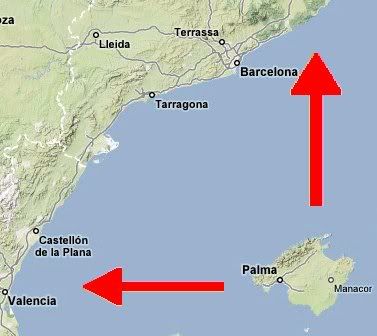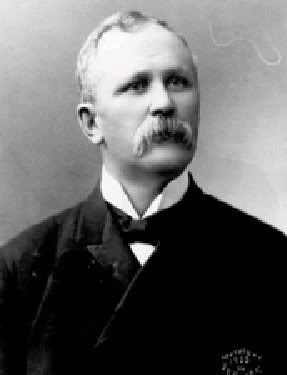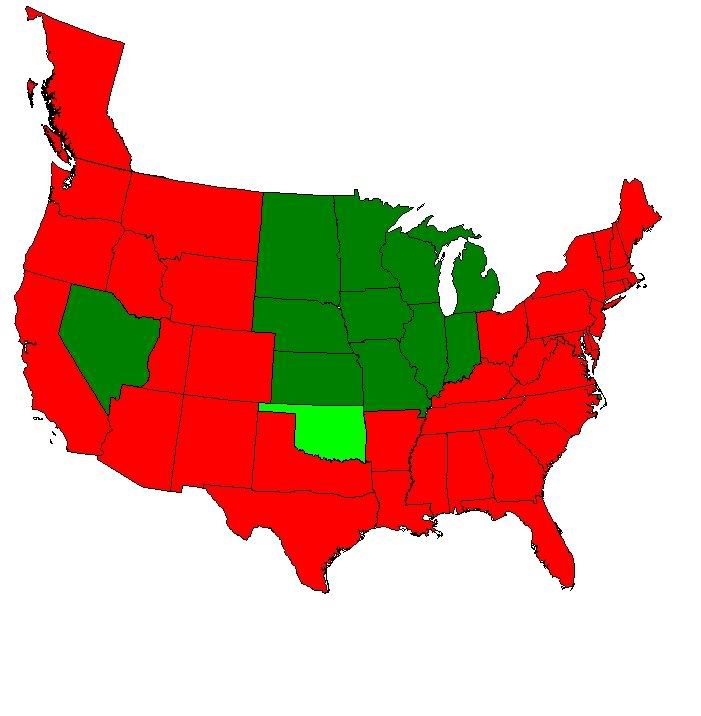Why Allen Won and the Two Brothers of Spain
~~
President Allen triumphantly returned to the White House in 1900, seeking to end the war with Spain just as triumphantly. But for Allen, it was a quiet ethnic group which would receive the majority of his (domestic) attention. Not since the rise of the Republicans in the South had African-Americans had such an impact on the turning of an election. It was the African American vote, disenchanted with the Populist mainstream and still, in some ways, tied to the pseudo-Populist Republicans of the post-war era, who won many of the Southern states for Allen. They turned out, in great number, to vote. And unlike many other election years, the White democrats of the South did not fight against him. Indeed for the first time since 1858 and the election of William Patterson, a Democrat, and before that 1836 and the election of Andrew Jackson, had the South and North voted together. So, for the first time in nearly fifty years, the Deep South and New England presented a united front.
Two men led this drive towards relevance for the African American voters in the South. The first was Booker T. Washington, the leader and driving force behind African American education in the South. Washington, based from Tuskegee University in Alabama, helped promote and encourage the rise of politically active blacks. From Tuskegee, and its sister schools in Virginia, Arizona and California, Africa-American political philosophers rose to great prominence. The writings of these men would influence political culture, both black and white, for decades to come. Chief among these was George Henry White originally of North Carolina. It was White who wrote first of the rise of the minority politics which would come to shape much of the American political scene in the 20th century. As a congressman, and later in literature, he described the rise of the minorities as such:
"but let me say, Phoenix-like he will rise up some day and come again. These parting words are in behalf of an outraged, heart-broken, bruised and bleeding, but God-fearing people; faithful, industrious, loyal, rising people – full of potential force."
Indeed it was this philosophy, of the phoenix rising from the ashes to re-invigorate the South, that drove many blacks to the ballot box. All of these various philosophies, from the Phoenix movement of White, to the "United Front" socialist philosophies of the California blacks, were organized, catalogued, and most importantly published, by Washington. Over the course of the 1890's, Washington helped spread political literacy all across the South. And with the help of Henry P. Cheatham, of North Carolina, this literacy turned into action. It was Cheatham who, according to some, made deal with the devil. Cheatham, along with the Republicans and Democrats, formed the tripartite power structure that brought Allen to power. Blacks were undeterred, for the most part, in their attempts to vote, and Cheatham made sure they all voted for Allen. It was a sacrifice for practical purposes, as this single event helped create the African-Americans as a significant force once and for all in US politics.

Henry P Cheatham, US Congressman
With political discussions aside, a war was still being fought. And for the commanders of the US Army, apart from those busy stuck in the Philippines, conquests had to be made to end the war. On December 27th, Cuba was finally 'liberated' by US forces, and all of the Mediterranean and South-American colonies of Spain were under United States control. And so it was determined, by both the General Staff and the President, that an invasion of Spain was necessary to end the war and re-enforce the Monroe Doctrine on European politics. Two brothers, General Leonard Wood and Admiral Charles Wood, devised a plan for striking into the heart of the Spanish empire. Their plan called for a three stage strike. The first involved capturing the Canary Islands and The Balearic Islands. From here, the coast of Spain would be available for assault. The second phase was a two front strike on Spain. The first involved a naval assault on the city of Barcelona. The navy was determined to force the Spanish to move their defense north, or risk having the city of Barcelona burnt in retribution for Baltimore. The final step was the landing of US forces in Valencia.

The assault on Spain
The plan was approved, with the end game being a victory over a Spanish army in Spain. The sight of American victory in Spain would force a peace treaty, especially with Austrian forces pressing into Southern France. The British were already putting pressure on Spain to come to terms with the Americans. Regardless, the presence of American troops in Valencia would change the shape of the conflict. The invasion began as planned, as Admiral Wood led the US Atlantic fleet against the Spanish. The Spanish attempted to attack the US fleet three times, and each time the Spanish were defeated. After the third battle, the US fleet gave chase, allowing the transports to unload marines onto the Canary Islands. Admiral Wood's fleet managed to catch the Spanish armada in the straights of Gibraltar. The Battle of the Rock occurred within sight of land, and the sight of the American fleet destroying, almost entirely, the Spanish was nothing if not a deterrent to a continued war.
However, after General Wood failed to seize the Balearic Islands, the plan had to altered. The US Fleet could not risk leaving Wood to assault the mainland on his own, and instead a joint-invasion of Valencia took place. Although the landings went without much resistance, the Spanish mobilized quickly to throw troops in between the Americans in Valencia, and their eventual target, Madrid. On May 27th, 1900, Leonard Wood and the 1st Corp landed in Spain and began their assault. From May to August, Wood attempted to reach Madrid. But he knew that any strike inward would risk his army being cut off from the resources of the fleet. Instead, he marched his army south across the coast, eventually sacking Almeria and Granada. But even as he moved West, the Spanish were on his tail. Eventually Wood made his stand, with newly arrived reinforcements, in Cadiz. Here he would come to blows with the Spanish army in the first great modern military battle.






